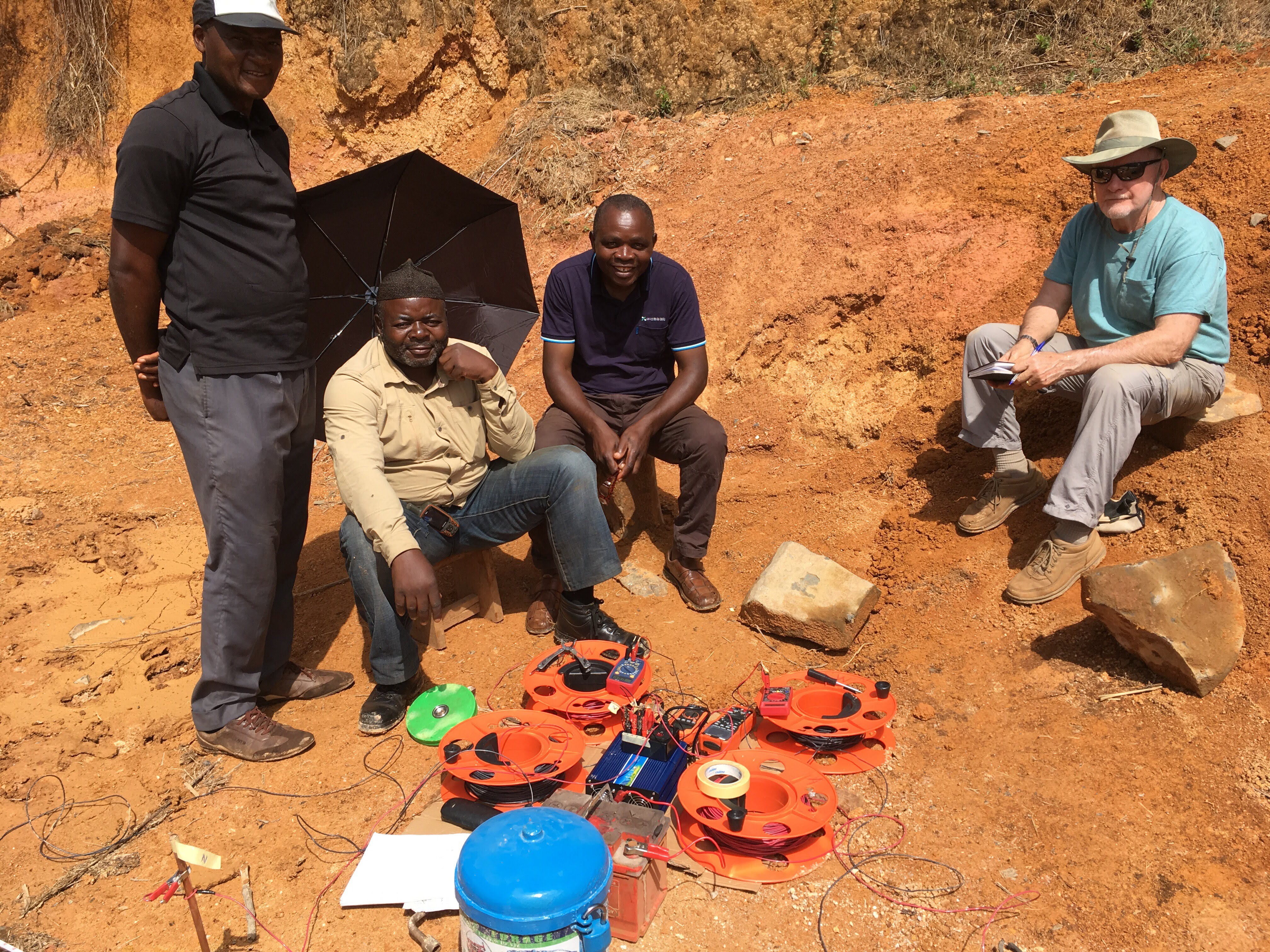Well-Siting Meter Testing in Cameroon
2018 International Collaboration Fund projects are well underway! In February, Global Hope Network International (GHNI) went to Nkar, Cameroon for their first international test of their well-siting meter. GHNI is partnering with Mike MacCarthy, Just Design LLC, and H20ptimal to build a well-siting meter that will inexpensively and effectively support local NGOs and communities to identify the appropriate location of a well prior to drilling. Through this ICF grant, they are building, prototyping, and improving the resistivity function of the meter, which is a measure of how strongly a given material resists electrical current, an important indicator of the density and composition of the ground. Subsequent iterations of this meter will also include conductance and seismic functions.

GHNI’s Joshua Knight was joined on this trip by geologist Chuck Bahr, a Rotary Member in Denver. Their goal was to build and test this meter using locally sourced materials and compare it to existing commercial meters, which cost between $3,000 and $10,000. The meter is relatively simple, consisting of electrical wire, two simple electrical multi-meters, a car battery, lightning rods, and an inverter. The inverter pulls power from the car battery and sends an electrical charge through the ground. The meters read the signals, providing data on the overall resistivity and therefore the suitability of the ground for drilling a well. Due to a little miscommunication they lugged 4 reels of electrical wire 7,000 miles to Cameroon (better to be safe than sorry!), but the whole meter could have been built in Cameroon for $400 USD. They were able to fully replicate the resistivity results of a commercial meter for shallow depths, but encountered noise in their signal below depths of 20 meters. While disappointing, this was not surprising and is why this group is planning several rounds of testing as a part of this ICF project.
For the next prototype, the group will work to remove the signal noise that was challenging at deeper depths. They’ll do so by adding a digital filter and a microprocessor. While this adds some complexity to the meter, they are committed to the affordability and replicability of this meter as a tool for NGOs and communities around the world.
Stay tuned for the progress of this collaboration!
